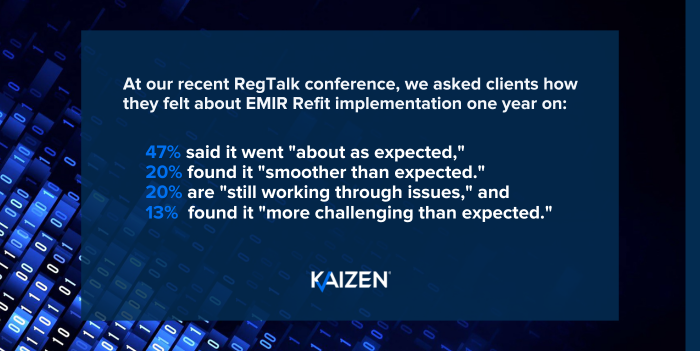Second fine for transaction reporting breaches in two weeks is a record £34.3m

The FCA has issued a record fine of £34.3m for incorrect transaction reporting, hot on the heels of a fine two weeks ago for similar breaches.
According to the FCA, the firm in question failed to provide accurate and timely reporting relating to 220.2 million transaction reports between November 2007 and March 2017.
If any firm doubts the FCA’s resolve in its pursuit of complete and accurate transaction reporting, they need to take note of these fines and the accompanying warning from Mark Steward, the FCA’s Director of Enforcement:
‘The failings in this case demonstrate a failure over an extended period to manage and test controls that are vitally important to the integrity of our markets. These were serious and prolonged failures. We expect all firms will take this opportunity to ensure they can fully detail their activity and are regularly checking their systems so any problems are detected and remedied promptly, unlike in this case.’
The two recent fines are almost double the amount of the previous 12 fines for MiFID reporting combined.
What went wrong?
The FCA’s Final Notice tells a very familiar tale of what happens when a complex organisation, acting in good faith, attempts to deliver upon these very complex regulatory obligations; a significant, material, and widespread set of issues left undetected for many years.
The key message is that these errors result from inadequate systems and controls over transaction reporting. In particular, the FCA found issues with:
- Change management
- Accuracy and completeness controls – again signalling issues with an approach that only tests data samples
- Reference Data – identification of counterparties
The FCA is evidently tired of sounding like a broken record as these three control issues continually result in transaction reporting failings. The message should be familiar to firms and their SMCR managers responsible for reporting. It’s not a secret that if firms don’t test the accuracy of their reporting, don’t test their reference data and change management processes, and don’t have adequate reconciliation from front office systems to the reports received by the FCA, then they cannot have confidence their reporting is correct.
Lessons for MiFIR transaction reporting
It is important to note that both fines are for failures under the previous MiFID transaction reporting regime. It is possible that this now marks the end of sanctions for the MiFID reporting regime and that the FCA’s focus will turn to the MiFIR reporting regime which is considerably more complex than the MiFID reporting regime. The FCA has already warned about the unsatisfactory quality of some transaction reporting under the new regime and the potential future consequences. There are many more things that can go wrong under the new regime and it is essential that firms are confident that they have adequate controls over their transaction reporting. Firms need to take note that the reference period for this fine’s transaction reporting breaches started on 5 November 2007 – the very first day of the MiFID transaction reporting; no grace period.
Get peace of mind in your reporting quality
Our blog about the fine two weeks ago asks ‘could it have been you?’ and if you have any doubt, it is important to act now. These two fines should be a wake up call for senior managers to get their reporting controls up to standard – and fast. This is exactly what we here at Kaizen exist to do. We have a proven track record in helping firms tackle their trade and transaction reporting issues and risks head on – and helping them to avoid censure whether it is for MiFIR, EMIR, Dodd-Frank or another G20 regulation.
Our ReportShield™ quality assurance service marries our regulatory expertise with data science, and uniquely tests every single record at source avoiding the pitfalls of testing only a sample of data. The service includes everything you need for reporting assurance including a bespoke control framework, quality assurance testing, reference data testing, advanced reconciliation and training. Please contact us for a discussion with one of our regulatory experts to find out how we can give you peace of mind in your reporting quality.


